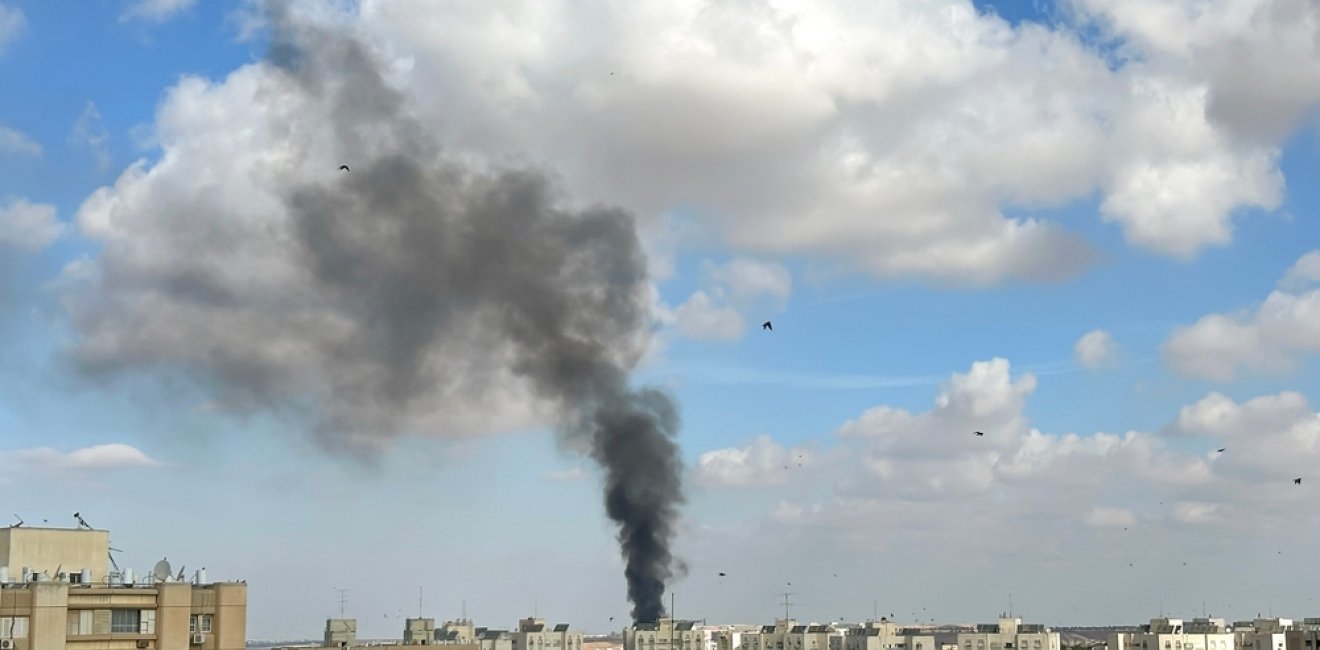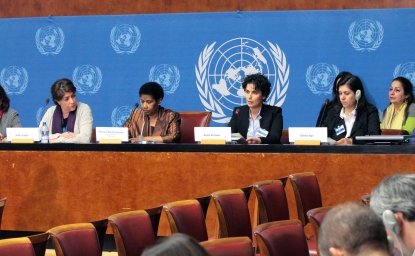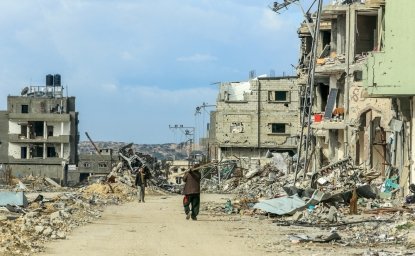The tragic events over the last month demonstrate that peace in the Middle East remains elusive. On October 7, Hamas attacked southern Israel killing over 1,400 and taking over 200 hostages. Hezbollah has been behind several attacks into Israel’s north. Palestinian Islamic Jihad (PIJ) appears to have hit the Al-Ahli hospital with a failed rocket barrage directed toward Israel.
These groups—designated terrorist organizations by the US government—receive various forms of support from Iran. Iran supplies them with weapons, technical-operational assistance, training, and funding, totaling tens of millions of dollars per year. The degree of Iran’s direct control of these proxy groups fluctuates—but the fact remains that Iran sees Israel as its mortal enemy.
But though these groups are mobilized by their hostility toward Israel, perceptions are as important as facts in this case, and have as much to do with why the attacks on October 7 occurred when they did.
Perceptions of vulnerability
Objectively, it is too early to say with certainty what perceptions factored into the thinking of the planners of this latest attack on Israel. But it is reasonable to consider now how Israel and our enemies in the world might be seeing international developments.
In addition to the haphazard US withdrawal from Afghanistan in August 2021 and Russia’s ongoing war of choice against Ukraine, coups in Niger (September 2023), Burkina Faso (January and September 2022), Guinea (September 2021), and Mali (August 2020), have added to a sense of chaos and hollowing out of governments involved in combatting terrorism.
What once appeared to be an ironclad approach in support of Israel is no longer the case, as various voting districts in the US are now increasingly critical of Israel.
More directly, however, the relationship between the Biden Administration and Prime Minister Benjamin Netanyahu’s government has been strained, fueled by disagreements over Israeli judicial reforms and the question of settlements in the West Bank. The US has favorites in Israeli politics and makes it known, while American legislators from both parties usually reiterate strongly the vitality of the US-Israel relationship whenever tragedy strikes. Still, US administrations frequently utter statements meant to appeal to their domestic constituencies. What once appeared to be an ironclad approach in support of Israel is no longer the case, as various voting districts in the US are now increasingly critical of Israel.
While the US military has never directly intervened in conflicts between Israel, the Palestinians, or their neighbors—except Lebanon in the early 1980s—there has been a sense in recent times that Israel has been left out on its own, and that the US has become reactive to threats and is reluctant to put American boots on the ground. When the media do not cover US interventions, there is a perception that the United States is either unwilling or incapable of acting to defend itself and others. Even a small operation like the US intervention in Grenada in 1983 can support the impression that the US defends its interests and friends.
The encroaching spillover
The Israelis are making it clear that they intend to end this fight once and for all.
The world watches as Israel responds with counterforce to defend itself. The Israelis are making it clear that they intend to end this fight once and for all. If Hamas relied on taking hostages to deter a full-scale response, they were no doubt disappointed.
The scope, complexity, and successful surprise of the Hamas attack as described in the press, hint at Iranian involvement, as some press outlets have suggested. There is motive, too. Besides Hamas and its grievances about conditions inside the Gaza Strip, Iran also stands to benefit from sabotaging the growing rapprochement between Israel and Saudi Arabia that was being built on the success of the 2020 Abraham Accords that normalized relations between Israel and three Arab states: Bahrain, the United Arab Emirates, and Morocco.
Hezbollah appears to be itching to get into the fight. On October 7-8, Hezbollah terrorists in Lebanon fired dozens of rockets, anti-tank missiles, and mortar shells into Israeli territory, striking an Israeli military post near the Israel-Lebanon border. Hezbollah publicly claimed credit for the strikes, endorsed Hamas’ attack on Israel, and claimed it attempted to infiltrate Israeli territory; the IDF responded with retaliatory rocket and drone strikes. Israel has since deployed tens of thousands of additional units along the northern border to make it clear to Hezbollah that the IDF is ready to respond to attacks. More recently, we have seen what the IDF has called “a significant escalation” of skirmishes between Israel and Hezbollah, with the death toll climbing in Israel’s north.
A two-pronged attack—as seen during the 1973 Yom Kippur War—would ramp up the danger to Israel. Something appears to be restraining Hezbollah so far, and this is good, as it is allowing Israel to focus its efforts on Hamas and Gaza. Still, it may only be a matter of time.
Perception meets reality
How does this end? Palestinian political leaders who once called for a negotiated settlement that could have led to peace have long since passed or have little sway among their people now. This leadership vacuum on the Palestinian side is the real conundrum. Unless Palestinians see positive leadership, violent radicals will ensure we see what we are witnessing now for decades to come. To make matters worse, Iran and Syria continue to evade blockades and supply their terrorist proxies with weapons, parts, and know-how, as well as new ideas on how to take the fight to the Israelis.
Israeli political and security leaders are facing public criticism for failing to detect and deter the attack. The walls around the Gaza Strip forced Hamas to figure out how to tunnel under and breach them while also acquiring rockets to be launched over. This allowed Israel to respond by standing up sophisticated defenses like the Iron Dome, which increased real and perceived security. Still, technological defenses have their limits, and the Iron Dome was eventually overwhelmed and will be in the future. Walls buy time, but a sure defense must be multi-layered. Human intelligence sources, a balance of high and low-cost technologies, and field agents on the ground have few substitutes.
Peace can only be established and sustained by action. Wherever it is established, the enemies of peace will pick away until it falls apart.
Peace can only be established and sustained by action. Wherever it is established, the enemies of peace will pick away until it falls apart. In this case, the very identity of Hamas is enshrined in opposition and violent hostility to Israel. Deterrence against hostile groups is a noble pursuit because, though it involves military build-up, the goal is ultimately to prevent conflict. It does not represent the build-up of life-threatening capabilities to use wantonly in pursuit of your selfish aims.
Hamas shows the policy of aggression, manifest in its emphasis on martyrdom above success or material improvement to people’s lives. In this case, Hamas’ martyrdom has put innocent people on both sides of this war at risk as long as the fighting proceeds. Unfortunately, as observers have noted, many in the so-called “Arab street” are taking heart at Hamas’ perceived boldness, even if it is fated to fail. For these sympathizers, there is some satisfaction in seeing attacks on Jews and the IDF in Gaza, even if there is no hope of ejecting them from Israel or obtaining a Palestinian state through terrorism.
Perceptions are as important as reality because people act on them. The US must speak with one voice against terrorism and hostage-taking and lead allies and partners to speak up in defense of Israel and support it. We must follow words with actions by providing aid while helping both sides discover a shared future vision that enshrines co-existence as a stepping-off point towards peace and prosperity.






